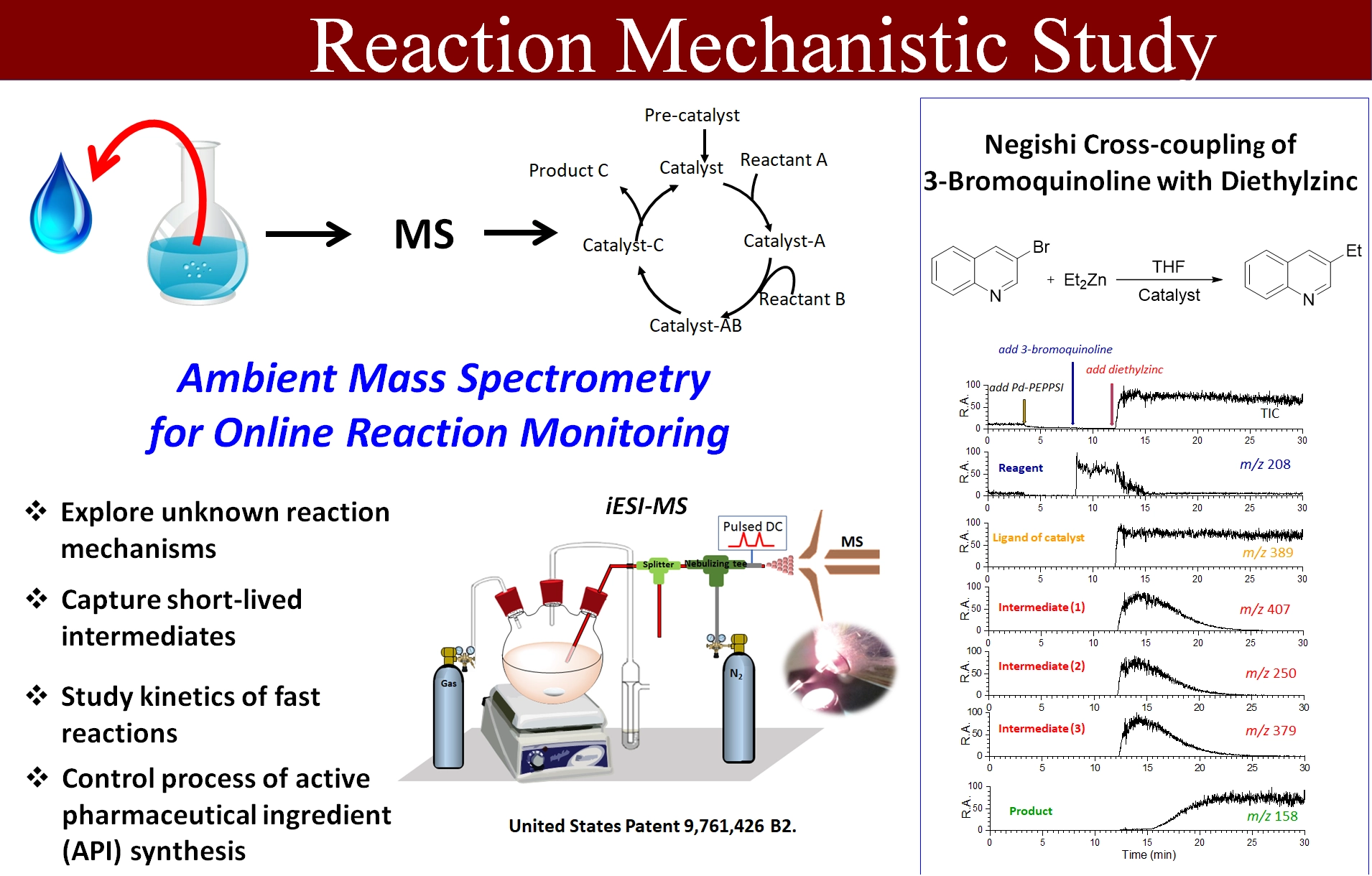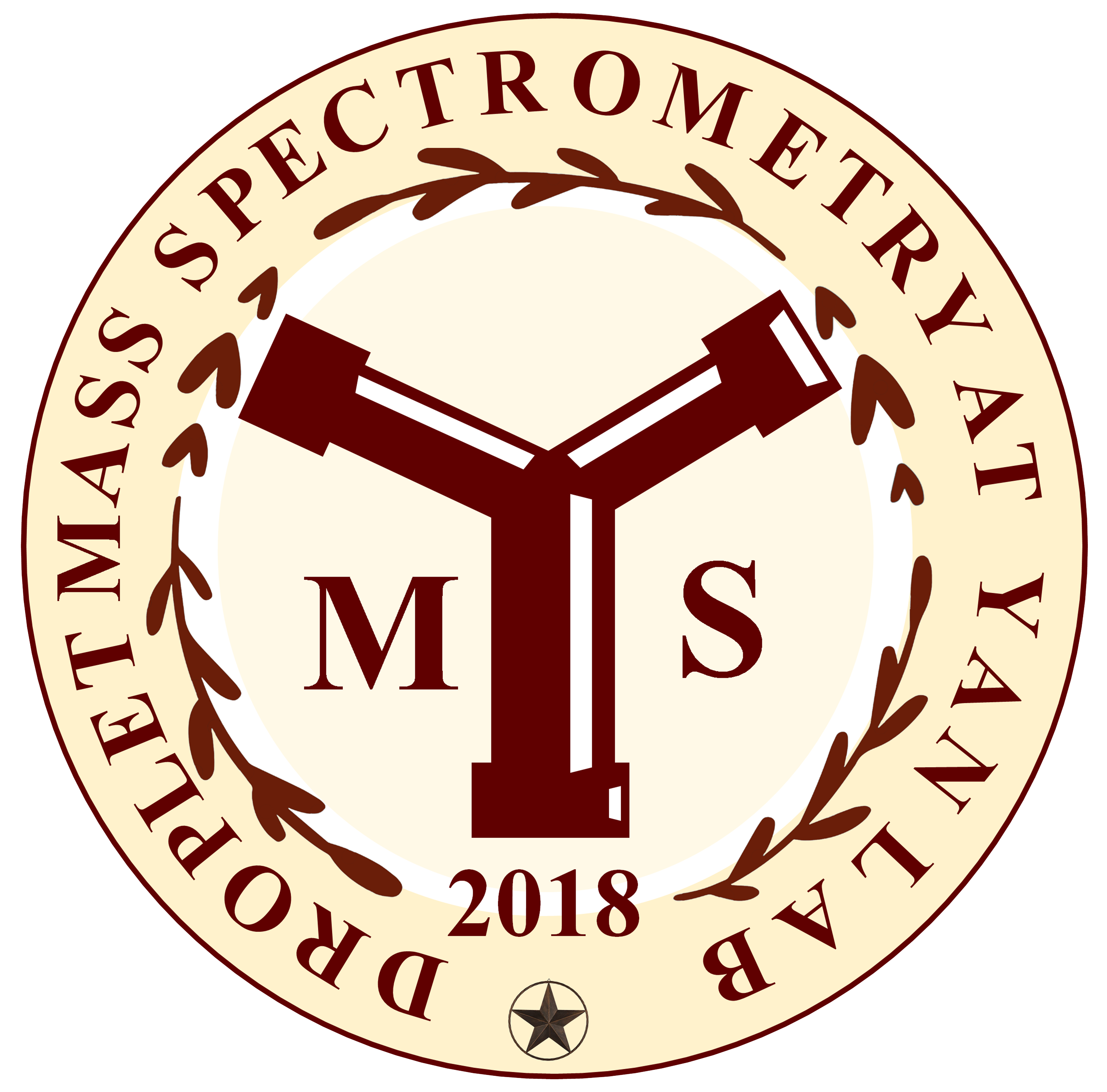Research at the Yan Lab
At the Yan lab, we seek to develop and apply novel mass spectrometric methodologies in disease diagnosis, reaction monitoring, and development of new synthetic methods. In particular, we are motivated by the possibility of enabling new technology for next-generation approaches to precision medicine, and sustainable synthesis.
This lab is a highly interdisciplinary research group. It provides students the opportunity to obtain hands-on experience in analytical, biological and synthetic chemistry. Our research interests span a range of topics. The central themes of all the topics below are droplet chemistry and mass spectrometry (MS).
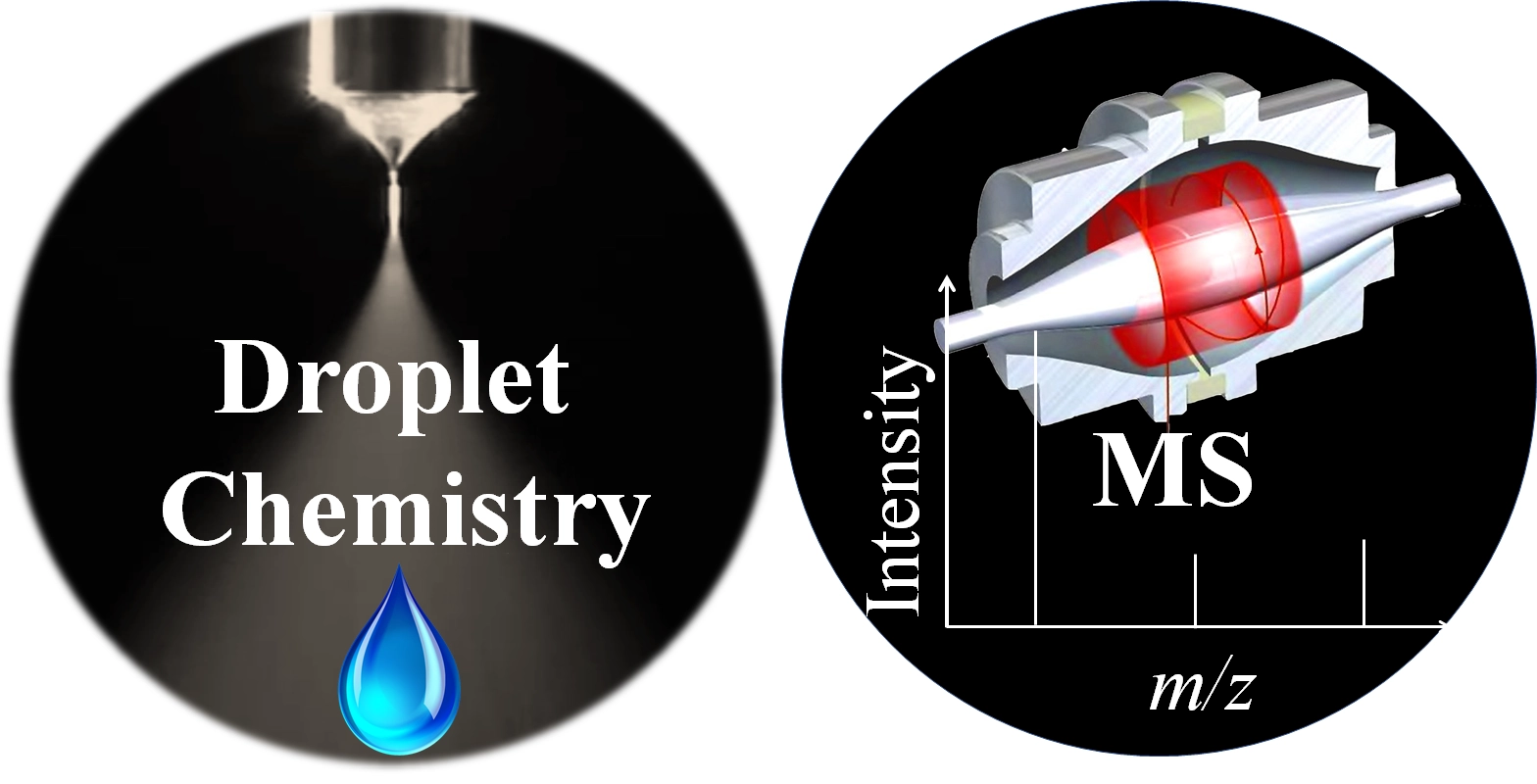
i) Mass spectrometry-based metabolomics and lipidomics:
We apply dual-modality imaging, mass spectrometry imaging and fluorescence imaging to discover biomarkers and elucidate their biological mechanism in brain, heart and cancer research. In the mass spectrometry imaging setup, microdroplets are formed from our home-made ion source. They are sprayed to exact molecules from samples placed on the imaging stage and deliver them to the mass analyzer for analysis.
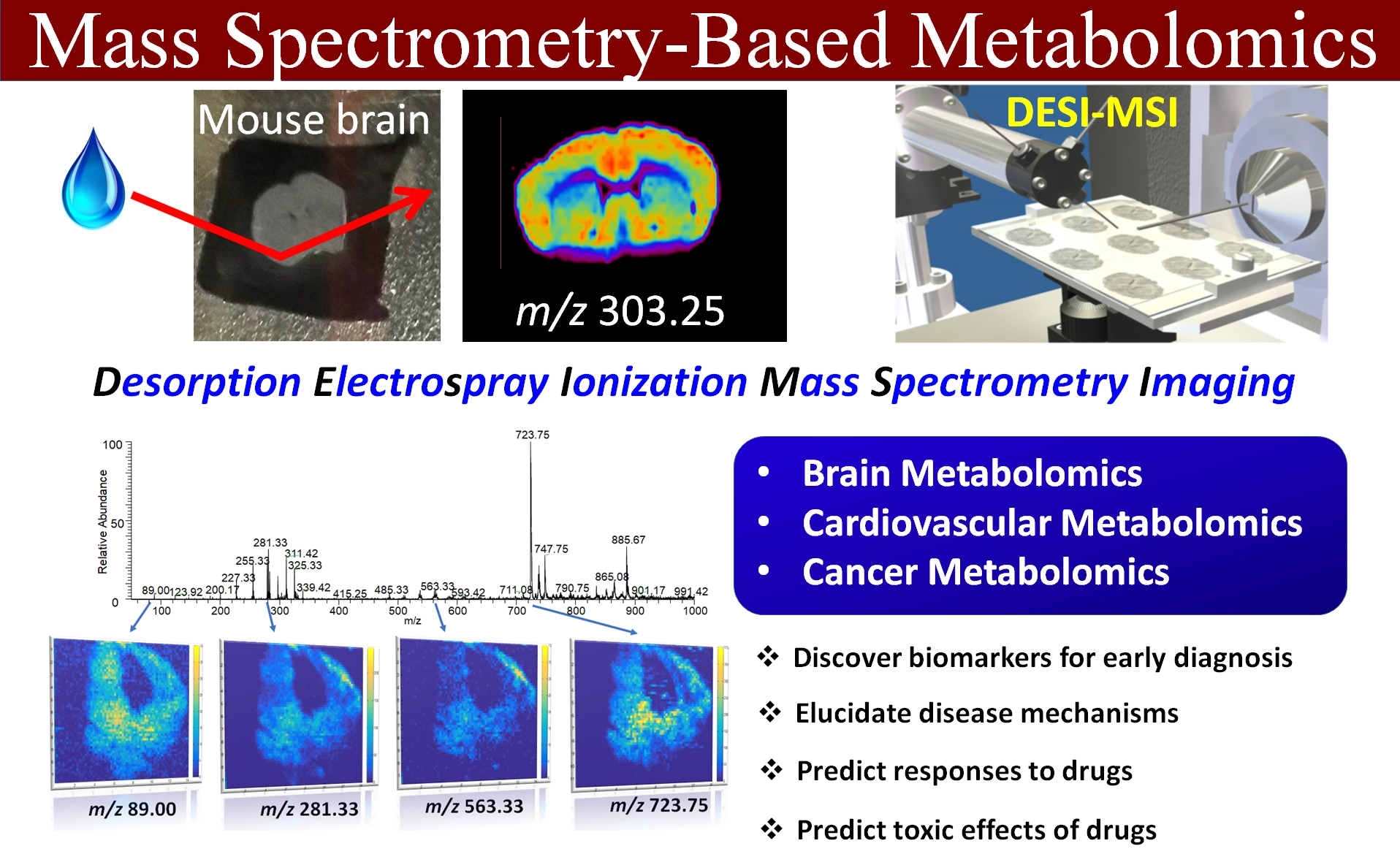
ii) Droplet on-demand for lipid characterization:
Capabilities to fully characterize the lipidome are required to identify the lipid network for metabolic and gene regulation, to understand disease mechanism and to provide corresponding treatments. We are interested in the development of methodologies for lipid characterization in droplets, the formation of which can be controlled by voltages.
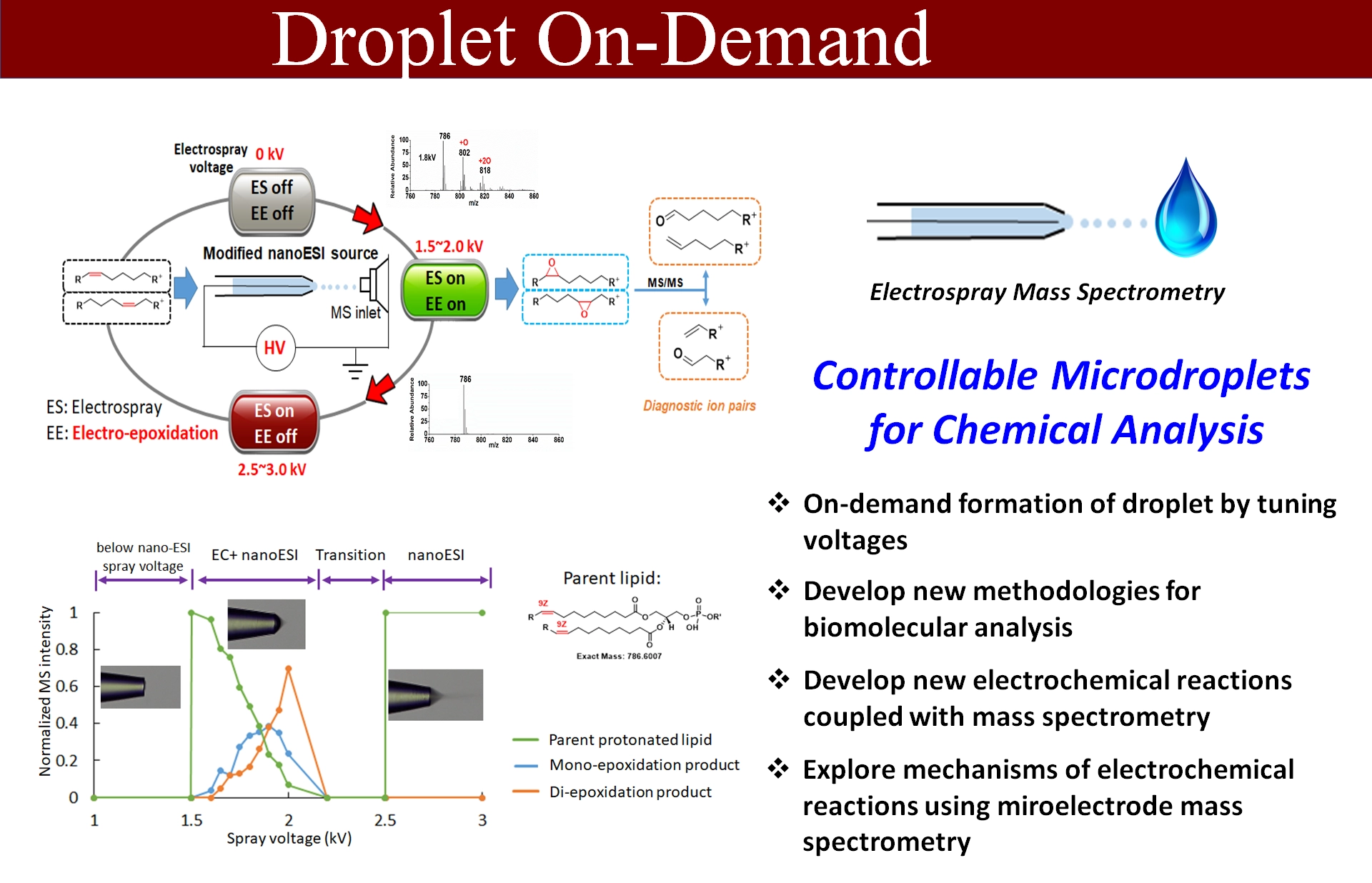
iii) Microdroplet reaction:
Mass spectrometry is universally considered as an analytical tool, however, its new feature was discovered: its use as a unique tool in synthesis. The uniqueness represents in its capabilities of dramatic acceleration of organic reactions and the driving of reactions that cannot occur in bulk. We aim to develop microdroplet reactors for acceleration, explore new reactivity, and study the fundamentals of microdroplet reactions.
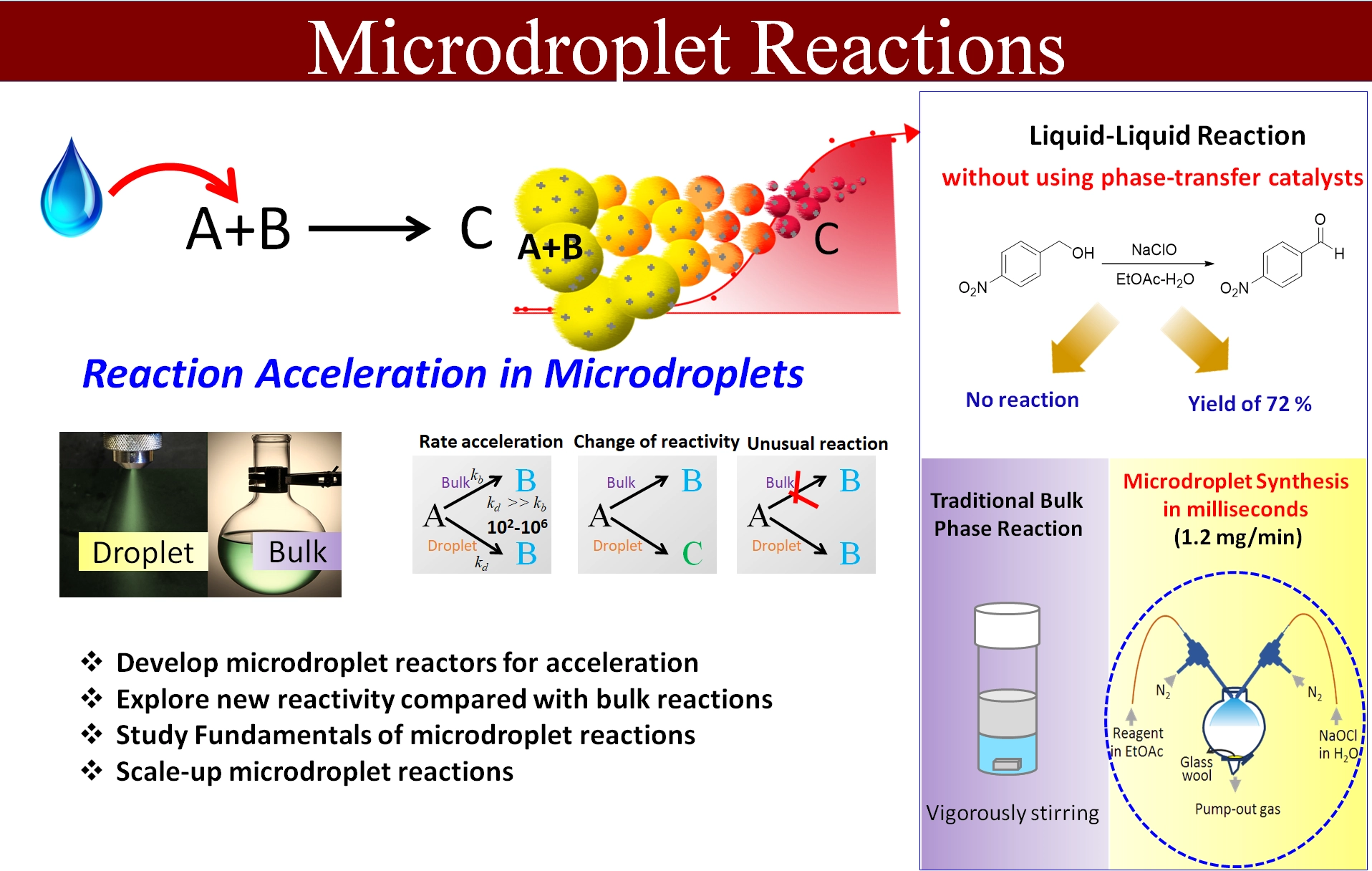
iv) Reaction mechanistic study:
Reaction mechanisms play an essential role in the study of organic chemistry. We aim to develop new online mass spectrometric reaction monitoring systems to explore unknown reaction mechanisms, capture short-lived intermediates, study kinetics of fast reactions, and control the process of active pharmaceutical ingredient (API) synthesis.
